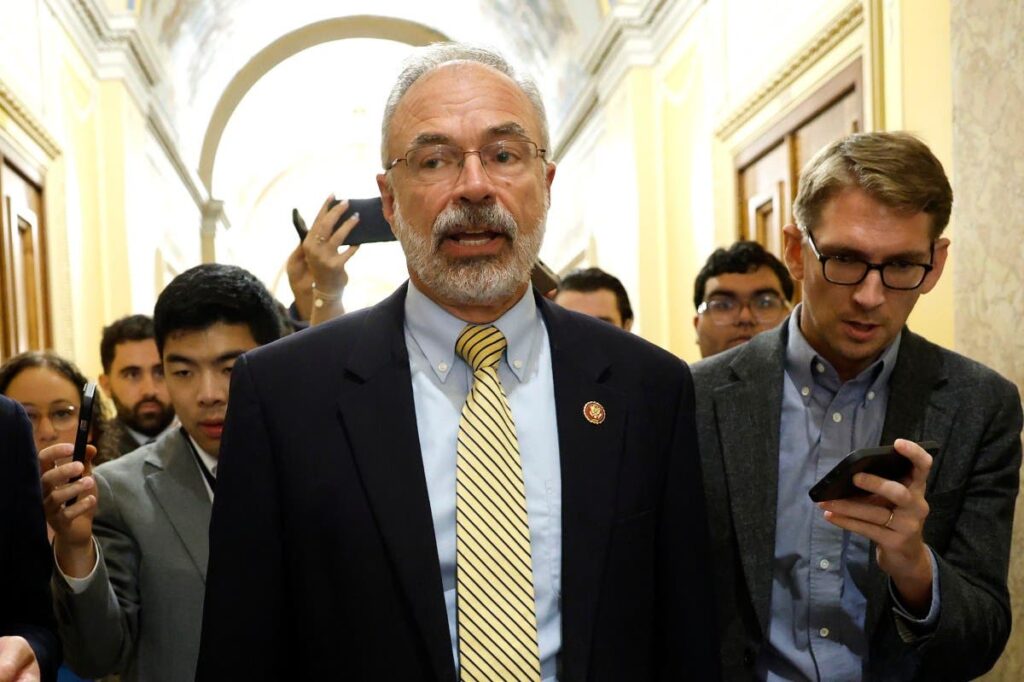Congress has returned to its fall legislative battles. Among them: whether to extend the Biden-era expanded Affordable Care Act (ACA) subsidies passed during the COVID pandemic.
These so-called “temporary” enhancements, originally enacted under the American Rescue Plan Act (ARPA) during COVID, were meant to soften the economic blow of a global health emergency, but Washington is now flirting with the idea of making them permanent.
That would be a colossal mistake.
These expanded ACA tax credits were always meant to be short-term adjustments. They both eliminated the income cap on subsidy eligibility, and increased the amounts that the federal government paid toward premiums on the Obamacare exchanges.
The result: millions of higher-income Americans who previously never needed these taxpayer-funded subsidies suddenly qualified for government assistance, and insurance companies reaped the benefits. Zero Republicans voted for ARPA, the so-called Inflation Reduction Act, or the Biden-era enhanced subsidies.
But congressional Democrats and even some Republicans now want to make these expansions permanent. Doing so would be costly, inflationary, and counterproductive to true health care reform.
The fiscal reality is that renewing these expanded subsidies would cost hundreds of billions of dollars over the next decade. We’re already drowning in debt and inflation. Throwing more borrowed money at a broken system isn’t just bad policy and economics—it’s reckless.
Supporters warn that “premiums will go up if Congress doesn’t act.” The truth is, if we extend these subsidies again, premiums won’t go down, but the national debt will go up. Once that borrowing train leaves the station, it doesn’t slow down, and we all know we’re not solving the health care affordability crisis—we’re just hiding it on the government (that is, the taxpayer’s) credit card.
The subsidies don’t actually reduce the cost of health care; they merely mask it or even increase it. By sending more taxpayer dollars directly to insurance companies, the ACA subsidies camouflage skyrocketing premiums without addressing the root causes of the health care affordability crisis.
Even more troubling, the expanded subsidies have distorted the private insurance market. Under the original ACA rules, Americans earning more than 400 percent of the federal poverty level were ineligible for taxpayer-funded subsidies. The COVID-era expansion removed that cap, which means individuals making nearly $500,000 receive taxpayer-funded assistance—while hard-working middle-class families on employer plans foot the bill. It’s ludicrous.
Furthermore, as the pro-life community has pointed out, some of the plans subsidized under ARPA cover elective abortions, which is why those concerned with this issue also oppose extension of the expiring “bonus subsidies.”
Making the subsidies permanent will harden Obamacare’s grip on our health care system and make much-needed meaningful reform impossible. Every year more Americans are becoming more reliant on government coverage, and every year the political will to fix the system fades further away.
This is why the Left introduces “temporary” programs to begin with; it knows in Washington these programs become permanent entitlements and will be “too hard” or “too politically unpalatable” to ever claw back, regardless of whether that would be the fiscally responsible thing to do.
And that’s why the Left is so eager to lock it in permanently now. To reiterate: the original premium tax credit was enacted in 2010 under Obamacare, and provides generous subsidies to the poor and middle class; these will continue past 2025. The issue is whether the extra taxpayer subsidies, which go toward wealthier households and to which Biden and congressional Democrats agreed when ARPA passed in 2021, will be phased out on schedule this year.
Instead of doubling down on Obamacare, Congress should focus on alternatives that empower patients rather than the government. This includes encouraging doctors to work directly with patients instead of insurance companies through direct primary care arrangements, allowing for health coverage that moves with employees when they transition from job to job, and promoting innovations that meet the diverse needs of American families—not one-size-fits-all Washington mandates.
Health care reform should be about freedom, choice, and conscience—not more subsidies, more debt, and more government control.
The pandemic is over. The emergency is over. It’s time to end the unaffordable emergency COVID-era spending and get back to common sense that addresses our country’s $37 trillion (and climbing) debt.
This article is signed by National Taxpayers Union President Pete Sepp and U.S. Reps. Andrew Clyde, Keith Self, Marlin Stuzman, and Scott Perry, and Chairman Andy Harris, M.D. of the House Freedom Caucus.
The views expressed in this article are the writers’ own.
Read the full article here

